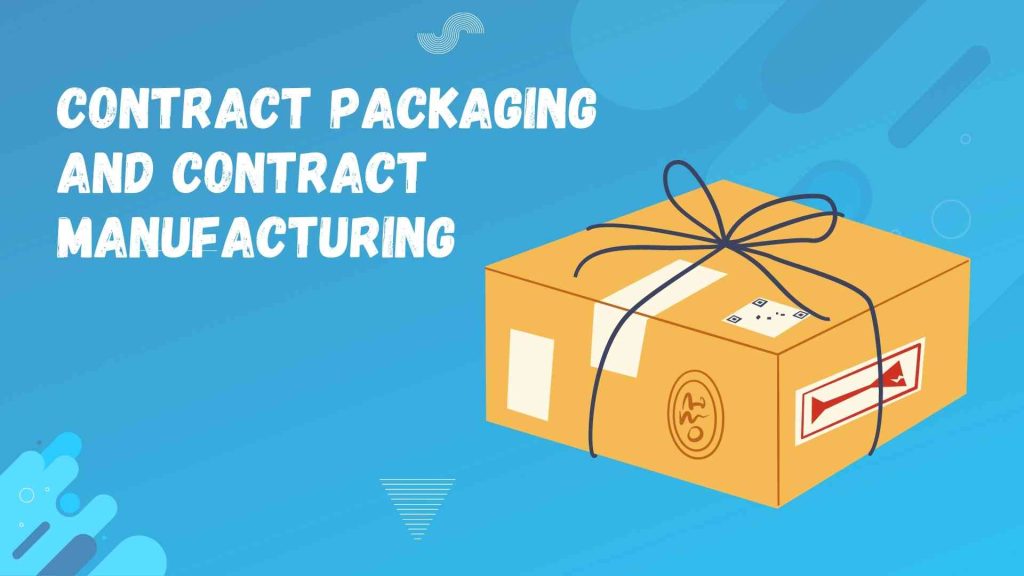In the dynamic business world, companies often seek to optimize their operations by outsourcing specific tasks to specialized partners. Two popular outsourcing options are contract packaging and contract manufacturing. While both concepts involve collaboration with external entities, they serve distinct purposes within the supply chain. We will explore the crucial differences between contract packaging and manufacturing, exploring their functions, benefits, and potential challenges.
I. Contract Packaging
Definition and Scope Contract packaging refers to hiring a third-party company to handle the final stages of product packaging. It includes filling, sealing, labeling, and assembling the product for retail distribution. The primary focus of contract packaging lies in enhancing the product’s appearance, safety, and marketability while ensuring compliance with regulations and industry standards.
Essential Operations Contract packaging service providers play a crucial role in streamlining the packaging process for businesses. Their expertise in handling various packaging materials and techniques allows them to efficiently manage multiple product types. Some standard functions of contract packaging include:
Primary Packaging: Handling individual products, such as filling bottles or blister packaging.
Secondary Packaging: Grouping individual units into retail-ready bundles or displays.
Tertiary Packaging: Creating shipping containers for bulk distribution, ensuring safe transit.
Advantages of Contract Packaging
Cost-Effective: Outsourcing packaging needs can reduce capital expenditures on machinery and labor.
Flexibility: Contract packagers can quickly adapt to fluctuating demands and accommodate seasonal variations.
Expertise: Specialized packaging companies possess the knowledge and experience to meet stringent packaging standards and regulations.
Speed-to-Market: Collaborating with contract packagers can expedite product launches and time-to-market.
Potential Challenges
Quality Control: Companies must ensure the contract packager adheres to quality standards and consistently delivers defect-free products.
Communication: Effective communication between the brand owner and the contract packager is vital to align expectations and minimize errors.
Intellectual Property Protection: Sensitive information regarding product formulations or packaging designs needs safeguarding.
II. Contract Manufacturing
Definition and Scope Contract manufacturing involves outsourcing the production of a product to an external manufacturer. This collaboration allows companies to leverage the contract manufacturer’s expertise, facilities, and equipment to produce goods on their behalf. Contract manufacturing spans various industries and product categories, from electronics to pharmaceuticals, and enables businesses to focus on their core competencies while minimizing production-related overhead costs.
Essential Functions Contract manufacturers produce goods according to the client’s specifications. Some critical functions of contract manufacturing include:
Product Design and Development: Collaborating on designing new products or improving existing ones.
Raw Material Procurement: Sourcing and managing the necessary raw materials for production.
Quality Assurance: Ensuring the manufactured products meet quality standards and regulatory requirements.
Production Scaling: Flexibility to adjust production volume to meet market demand.
Advantages of Contract Manufacturing
Cost Savings: Outsourcing production eliminates the need for investing in production facilities and equipment.
Specialized Expertise: Contract manufacturers often possess specialized knowledge and experience in their respective industries.
Scalability: Manufacturers can accommodate production volume fluctuations, reducing the risk of under or overproduction.
Market Expansion: Contract manufacturing can facilitate market entry into regions with specific manufacturing regulations or trade barriers.
Potential Challenges
Quality Management: Companies must establish robust quality control and assurance mechanisms to maintain product consistency.
Supply Chain Risks: Dependency on external manufacturers exposes businesses to supply chain disruptions or delays.
Intellectual Property Concerns: Safeguarding proprietary information during the collaboration is essential.
The United States contract packaging market is foreseen to expand at an annual growth rate of 9.42% over the forecast period. Growing demand and changing preferences among manufacturing firms are driving the market. Companies outsource packaging requirements to contract packaging organizations to focus on their core companies and reduce operational costs. The contract packaging market is segmented into primary, secondary, and tertiary packaging types. The end-user industries are food, beverage, pharmaceuticals, home care and personal care, and automotive.
How Acumatica Can Enhance?
Contract packaging and manufacturing involve outsourcing operations to external entities, but they cater to different supply chain stages. Contract packaging focuses on enhancing the final presentation and marketability of the product, while contract manufacturing centers on the actual production process. Understanding these key differences is vital for businesses to make informed decisions when considering outsourcing options, ultimately leading to improved operational efficiency and competitiveness in the market.
Acumatica cloud ERP can significantly enhance contract packaging and manufacturing processes by streamlining operations, improving visibility, enabling efficient collaboration, ensuring quality control, and optimizing cost management. Its flexible configurations, scalability, and mobile accessibility make it a valuable asset for businesses seeking to stay competitive in the dynamic world of contract packaging and manufacturing.
By embracing Acumatica, companies can achieve heightened efficiency, enhanced decision-making, and improved overall contract packaging and manufacturing performance. Contact us for a customized ERP.

Vijay comes with a vast experience in ERP and enterprise solutions space with about 20 years of experience in various packaged application like Acumatica, SAP, Orion, Salesforce.com, SugarCRM and, SalesLogix.

